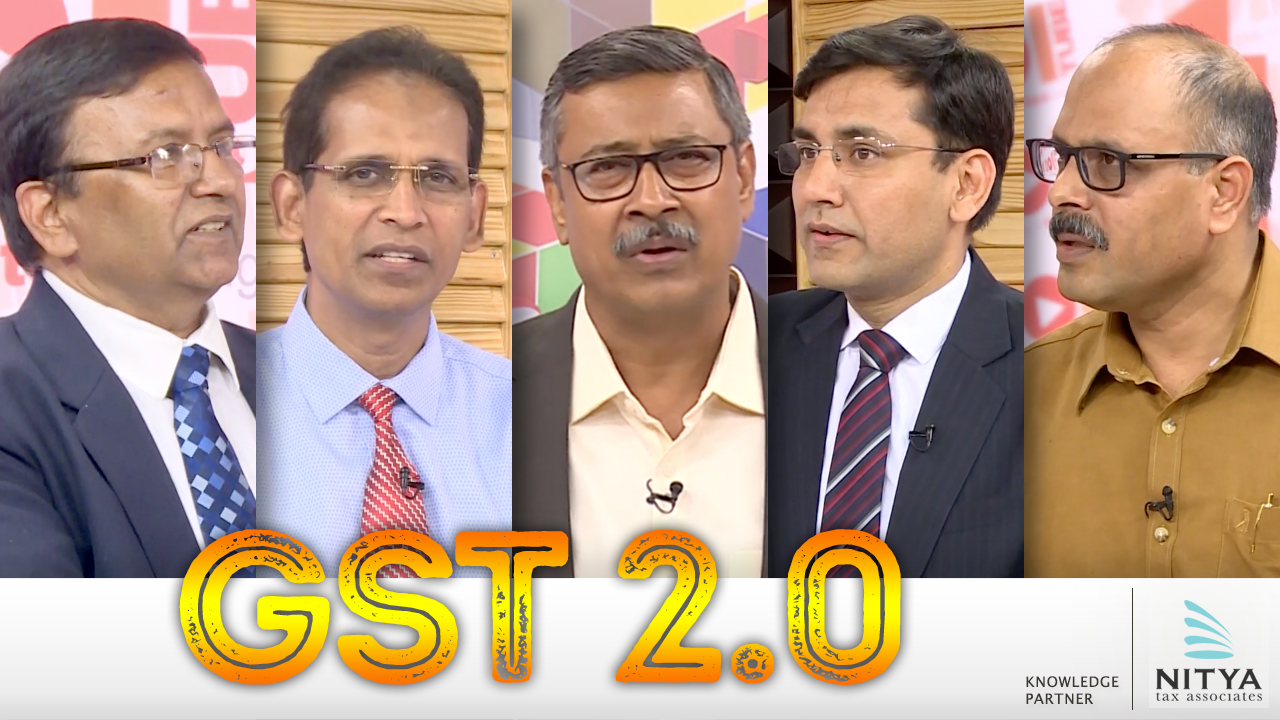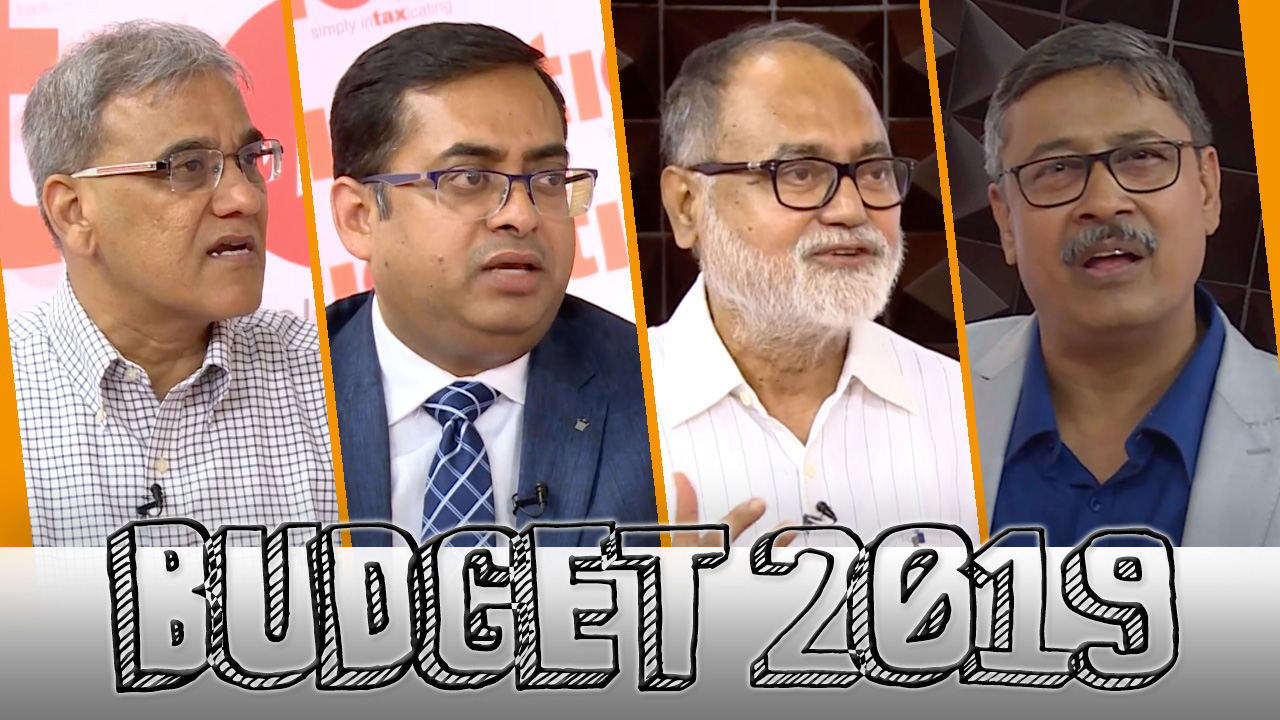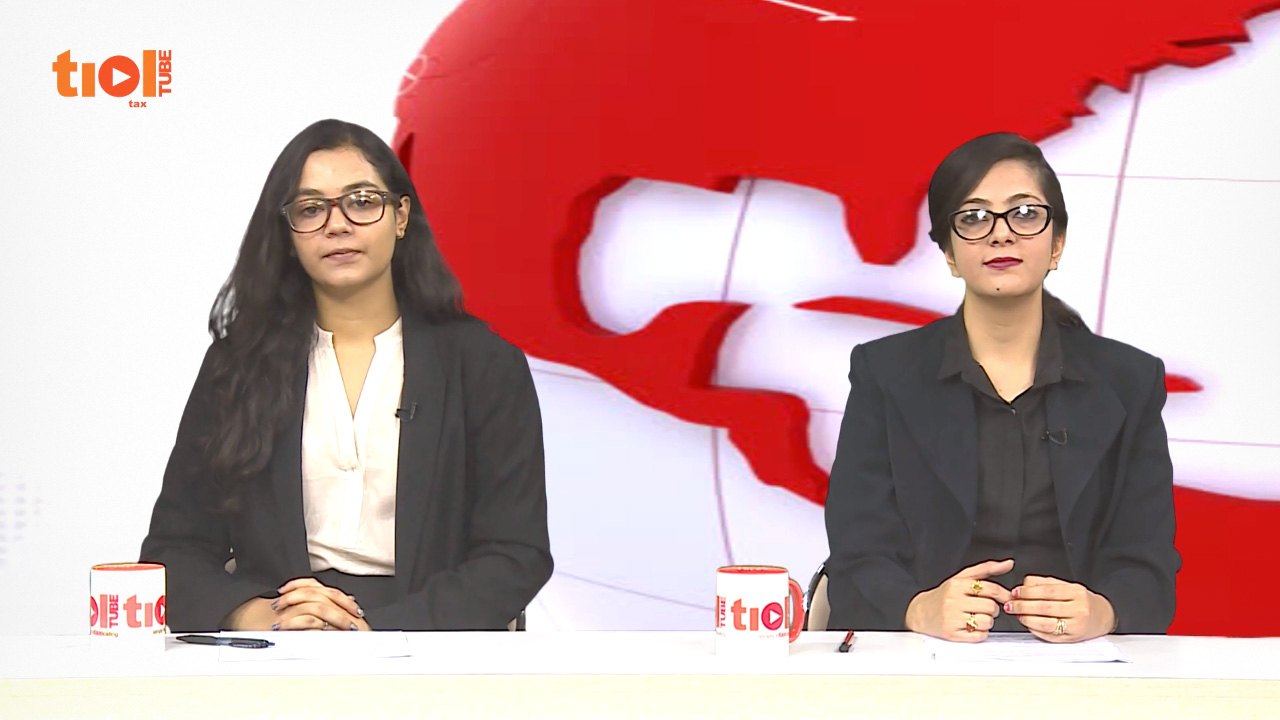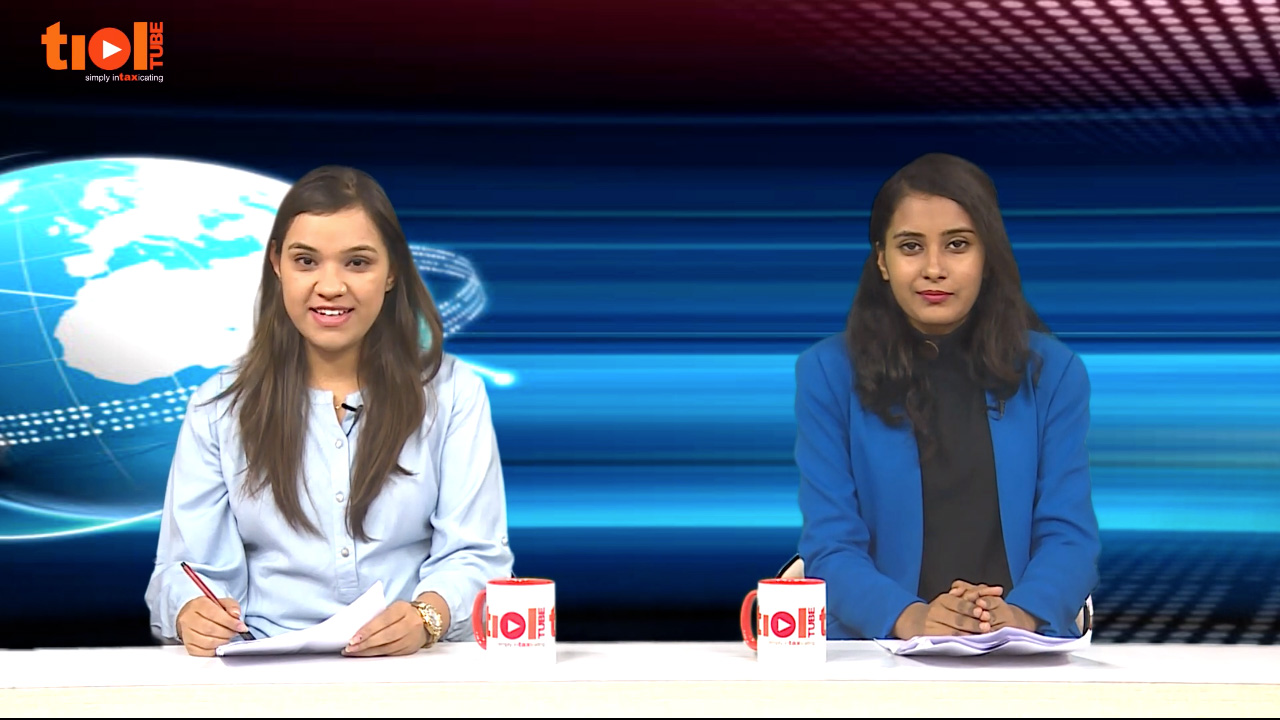|
SERVICE TAX
2019-TIOL-1833-CESTAT-BANG
Lakshminarayana Mining Company Vs CCT
ST - GTA - Appellant challenges the demand of differential service tax of Rs.92,51,572/- for the period from 1st January 2005 to 30th September 2006 as recipient of 'goods transport agency service' besides interest and penalties - appellant has paid the entire demand and same has been appropriated in the impugned order - Core issue is the taxability of the consideration paid by the appellant for utilization of lorries for transportation of 'iron ore' from their mines to the port of export at New Mangalore - It is the claim of the appellant that the trucks are hired by themselves and the 'iron ore' for export are loaded on to them for carrying to the port of export; that there is no agency function involved as the goods are loaded on vehicles hired by them and, hence, there is no third party involved; that it was not the intent of the Government to tax 'goods transport operators' but that the tax leviability was to devolve on agencies that perform the function of acceptance of cargo for transport under consignment notes.
Held: From the provisions of the Finance Act, 1994, it is clear that the tax liability will arise only upon the goods transport agency i.e., one who undertakes responsibility, in full legal sense, for the cargo despatched by it and an individual truck operator who does not accept such responsibility, is merely performing the activity of transport of goods which is not the subject of the tax - It is also clear from the records that the invoices that have been relied upon by the adjudicating authority includes addition of service tax component as well as subtraction of the same, therefore, it is not relevant to the findings in the adjudication order that these were indication of acceptance of tax liability - Furthermore, reference to goods consignment number in the 'trip sheet' does not constitute the issue of 'goods consignment note' which is essential pre-requisite for taxation of the service - it would appear that the activity performed for the appellant by transporters falls outside the ambit of section 65(105)(zzp) of Finance Act, 1994 and is not taxable in their hands - impugned order set aside and appeal allowed: CESTAT [para 8 to 11]
- Appeal allowed: BANGALORE CESTAT
2019-TIOL-1817-CESTAT-MUM
Ashutosh Marines Vs CGST & CE
ST - The assessee is engaged in providing Manpower Recruitment or Supply Agency services - In a raid conducted by the DGCEI in the premises of another company located in the same premises as the assessee, it was noted that the assessee paid duty as per ST-3 returns which was not in variance with its balance sheet - It also appeared that the assessee short-paid duty - SCN was issued & duty demand was raised with interest & imposition of penalty upon adjudication - The same was sustained by the Commr.(A) - Hence the present appeal by the assessee.
Held - The assessee conducted preliminary interview of candidates & forwarded select names to the other firm in whose premises the raid was conducted - In the O-i-O as well as the SCN, it is seen that there is no invoice raised against such collection from the candidates and so the amount shown in the balance sheet was taken by the Revenue as the gross amount - Hence no evidence on record exists to show that the entire bill in raised by the assessee except for such figure mentioned in the balance sheet - Moreover, though no written contract is available, still entire process of requirement till its conclusion was a continuous one and the same cannot be considered as two separate services - Hence duty was paid by the assessee and the other firm separately on the gross amount collected and distributed between them and imposing duty liability on the assessee, on the ground that it had paid the same alone on the net amount would amount to double taxation, which no law of the land had ever approved of - Hence the O-i-A merits being quashed: CESTAT
- Assessee's appeal allowed: MUMBAI CESTAT
CENTRAL EXCISE
2019-TIOL-1343-HC-MUM-CX
Veena S Hosmane Vs UoI
CX - After the O-I-O was made under provisions of CGST, 2017, the petitioner instituted appeal before Commissioner (A) - However, this appeal was instituted beyond period of 90 days, i.e., beyond the period of maximum extendable period by Appellate Authority - Accordingly, the appellate Authority by order dated 25th May 2017 dismissed the same as time barred - This dismissal was upheld by Tribunal by its order dated 21st November 2017 - The two Full Benches have in fact held that even in a petition under Article 226/227 of Constitution of India, High Court, should not condone the delay beyond period of 90 days in instituting the appeal before Appellate Authority - Accordingly, there is absolutely no merit in challenge as to the orders dated 25th May 2017 and 21st November 2017 - The contention as raised, cannot be regarded as a contention within the scope of judicial review explained by Full Bench of Gujarat High Court in Panoli Intermediate (India) Pvt. Ltd. 2015-TIOL-1556-HC-AHM-CX-LB - At the highest, as the ground raised, may have warranted some examination the exercise of appellate jurisdiction, but not in exercise of powers of judicial review - The petitioner, delayed the institution of appeal and therefore, cannot expect that this Court converts itself into an appeal court whilst exercising powers of judicial review under Article 226 of Constitution of India - The contention as raised would require re-evaluation and re-appreciation of factual position - Such an exercise cannot be undertaken in exercise of limited jurisdiction of judicial review - Besides, the impugned order was made on 10th March 2016 - Even the final order by Tribunal was made on 21st November 2017 - This petition was however, instituted only on 29th September 2018 - There is absolutely no explanation for inordinate delay in institution of the petition - The averment in petition is that there is no delay or laches in instituting this petition - Therefore, the petitioner, far from acknowledging the delay and explaining the same, does not even admit that there is any delay or laches - This is an additional ground for dismissing this petition: HC
- Petition dismissed: BOMBAY HIGH COURT
2019-TIOL-1342-HC-MUM-CX
Dnyaneshwar V More Sakhar Karkhana Ltd Vs CCE
CX - During period 2012-13 to 2014-15, assessee manufactured excisable goods i.e. jaggery and jaggery powder and cleared the same for home consumption without payment of excise duty - On the basis of intelligence received by Department, the factory of assessee was visited and it was found that the assessee had not complied with Central Excise law and procedure nor paid any excise duty on removal of excisable goods - The finding on facts as found by Tribunal, the assessee has not paid excise duty on the goods cleared for home consumption for the period of 3 years nor followed any excise procedures - The nonpayment of excise duty and not following of excise procedures came to light only because of intelligence received by Revenue and subsequent visit to respondent's factory - It is to be noted that the assessee has not disputed duty liability and interest - Thus, the occasion to consider the issue of demand being barred by time does not arise - So far as penalty is concerned, the plea of ignorance of law is the only defense / submission for non imposition of penalty - The assessee is a limited company and is in the business of manufacturing of jaggery and jaggery powder - The plea of ignorance of law cannot be accepted as stated in the well known maxim "Ignorantia Juris Non Excusct" i.e. ignorance of law is no excuse - This for the reason not because all men know the law but because it could then be an excuse every man would use / plead and it would be impossible to refute it - Moreover, there is no material to support the plea - The view taken by Tribunal cannot be said to be perverse and / or arbitrary warranting interference of this Court - Thus, the questions proposed, do not give rise to any substantial question of law: HC
- Appeal dismissed: BOMBAY HIGH COURT
2019-TIOL-1816-CESTAT-HYD
Cubex Tubings Ltd Vs CC & CE
CX - The case made out against assessee in SCN is that they have fraudulently availed CENVAT credit on 12 Bills of Entry pertaining to purchase of copper ingots/scraps on high sea sales basis from M/s. MM Enterprises without actual receipt in their factory of manufacture at Patancheru in A.P. and their consumption in manufacture of finished goods - Resultantly, it is also alleged that the fraudulently availed CENVAT credit based on those Bills of Entry and utilized the same for payment of duty on their finished goods - The main assessee was taking a consistent stand before lower authorities that they had religiously recorded the receipts and consumption of imported goods in statutory of books and cleared manufactured products on payment of appropriate duty - The details as given by main assessee in form of RG-23A part I&II, RGI are not controverted by Adjudicating Authority in findings but pleas were dismissed by recording that the main assessee had not produced evidence of receipt of materials in their factory - As regards the RG-23 part I& II and statutory books, it is noticed that this position is unchallenged, it can be noted that same were maintained and produced before audit parties during scrutiny of records, on various dates for the period in question - If that be so and there being no adverse observation in various audit report, as to there may be a case of non-receipt of inputs, entire case of revenue is based on statements will fall under its own weight as during cross examination the individuals have denied to have made the statements, which would mean that there is lack of cogent evidences - On this ground itself the entire demand fails - In the absence of any corroborative evidences, it has to be held that the Revenue has not been able to prove that CENVAT credit of CVD paid on Bills of entry was availed without receipt of inputs - As regards demands confirmed on letter written by Concor Corporation that there was receipt of imported goods at Turbhe and transported to place other than Hyderabad - The main assessee had been seeking cross examination of officials, which was declined by Adjudicating Authority - It is settled law that no reliance can be placed on a document which is not tested in cross examination if specifically sought - Adjudicating Authority should be extended an opportunity to consider the plea of cross examination of individuals from Concor Corporation - Accordingly, matter remanded to the Adjudicating Authority to reconsider the issue - Needless to state that the adjudicating authority will follow principles of natural justice before coming to a conclusion - As regards penalties on individuals on majority of demand is set aside, on merits itself, penalties on individuals cannot be sustained - Accordingly penalties on all assessees are set aside: CESTAT
- Matter remanded: HYDERABAD CESTAT
2019-TIOL-1815-CESTAT-BANG
Arvind Brands Ltd Vs CCE
CX - The appeal is directed against impugned order whereby the Commissioner (A) has remanded the matter to the original authority with direction to rework the actual CENVAT credit admissible based on the excise invoices produced by assessee - Though the assessee have taken credit on the basis of commercial invoice but they have informed the department regarding their methodology of availing credit on 10.4.2003 - Further, Commissioner (A) has recorded that there is a statement of assessee wherein they have explained the procedure regarding availment of CENVAT credit, which means that the assessee have not suppressed the relevant information from the Department - Thereafter, the Department issued SCN after almost four years after the disclosure of information by assessee regarding their method of taking the CENVAT credit - Once the department was aware of the procedure followed by assessee for taking the CENVAT credit subsequently the department cannot allege suppression with intention to evade duty - It is settled law that mere failure to declare the information does not amount to willful mis-declaration or willful suppression - There must be some positive act on the part of party to establish willful mis-declaration or willful suppression - Further, it has been held that mere omission to disclose would not amount to suppression of facts unless there was deliberate attempt to evade duty - The entire demand is barred by limitation - Therefore, once the entire demand is barred by limitation, Tribunal need not decide the case on merits: CESTAT
- Appeal allowed: BANGALORE CESTAT
2019-TIOL-1814-CESTAT-BANG
Hyva India Ltd Vs CCE, C & ST
CX - The assessee, a manufacturer of 'bus bodies' on behalf of owners of 'chassis', including M/s Tata Motors Ltd, was proceeded against by jurisdictional central excise authorities for recovery of duties alleged to have been short-paid by concealing the correct assessable value on transfer of 'chassis' from M/s Tata Motors Ltd. - The value alleged to have been excluded for computation of duty liability by adoption of price at the same level as that at which 'chassis' were cleared by M/s Tata Motors Ltd to the assessee included a discount, the cess discharged under Automobile Cess Act, 1984 and the freight incurred in transporting the 'chassis' to the premises of assessee - According to revenue, the relationship between assessee and M/s Tata Motors Ltd was that of principal and job-worker, apparent from the clearance on 'no sale' basis, the restriction on utilization of CENVAT credit of duty paid by M/s Tata Motors Ltd which was to be availed by assessee only for the clearance of fully built vehicles by latter and the delivery of furnished after executing the work, back to the regional sales offices of M/s Tata Motors Ltd. - It is not in dispute by either side that assessee is a job worker and the clearances are not at 'arm's length' in the manner that clearances effected to their authorized dealers - According to assessee, the adoption of price at which goods are sold to authorized dealers is the most apt in terms of section 4 of CEA, 1944 - The assessee, being a job worker, is liable to duty on the value of the goods transferred for purposes of undertaking job-work and the job-work charges recovered from the principal - On the job-work charges, there is no dispute - The decision of Larger Bench of Tribunal in Ispat Industries Ltd 2007-TIOL-245-CESTAT-MUM-LB requires the principal manufacturer to discharge duty liability on value determined in accordance with rule 4 of CEVR, 2000 - The adjudicating authority had erred in adding back the freight and cess - The cycle of commercial activity in the impugned transaction involves transfer of the 'chassis' to the assessee, discharge of duty liability by principal manufacturer, transfer of the finished goods to the depots of the principal manufacturer after discharge of duty liability by the job-worker and final clearance thereafter - Till the delivery of goods to the ultimate buyer of 'built-up vehicles', the valuation for the purpose of determination of duties of central excise is the cost of manufacture - The price at which goods are cleared by M/s Tata Motors Ltd to their authorized dealers includes, other than the cost of manufacture, the cost of transportation and the profit component - The adoption of this price for determining the duty liability in the hands of the principal manufacturer is not in any way prejudicial to Revenue and, therefore, cannot be a cause of grievance to the tax authorities - The demand of duties of central excise, along with interest thereon, and the various penalties imposed in the impugned order are set aside: CESTAT
- Appeals allowed: BANGALORE CESTAT
CUSTOMS
NOTIFICATION
dgft_trade_notice_20
Issuance of Multiple Deficiency Letters and in Piecemeal manner during redemption of AA/EPCG CASE LAWS 2019-TIOL-1345-HC-AHM-CX
CGST Vs Anmol Chlorochem
CX - The present application has been preferred on absolute misreading of decision of Supreme Court in the case of Asian Resurfacing of Road Agency Pvt. Ltd. and another - The observations of Supreme Court with regard to continuation of any interim order beyond the period of six months in any civil or criminal proceedings arising from a trial fell altogether in a different context - The observations made in decision of Supreme Court in context of Civil and Criminal litigation cannot be made applicable in a Tax Appeal - An identical issue fell for the consideration of a Division Bench of High Court of Bombay in case of Oracle Financial Services Software Ltd. - In view of the same, no good reason found to vacate the interim order passed by this court - If Revenue is so much concerned about interim relief which is operating in favour of assessee, than it should take necessary steps to see that the tax appeal is taken up for final hearing - This application fails and is hereby rejected: HC
- Application rejected: GUJARAT HIGH COURT
2019-TIOL-1344-HC-AHM-CUS
Singhal Industries Pvt Ltd Vs UoI
Cus - The challenge in writ application is to Notfn dated 13th October 2017, in which, the pre-import condition has been imposed on imports made under the advanced authorization licenses - The parties have brought to notice the judgement rendered by a Division Bench of Court in Messrs Maxim Tubes Company Pvt. Ltd. 2019-TIOL-459-HC-AHM-CUS - The Notification, which is a subject matter of challenge, has been struck down as ultra vires - Nothing remains to be adjudicated in this petition, same is disposed of accordingly: HC
- Application disposed of: GUJARAT HIGH COURT
2019-TIOL-1813-CESTAT-BANG
Classic Granites Vs CC
Cus - The assessee have imported Polished Porcelain Tiles and filed Bill of Entry and paid the Customs duty and also paid Anti-Dumping Duty - But later on he realized that he was not liable to pay the ADD because the Notification imposing the Anti-Dumping duty though dated 29.03.2016 when the Bill of Entry were filed but in fact this Notification was published in the Gazette of the Government of India only on 02.04.2016 which means that on the date of import of the goods this Notification was not in force and therefore he has wrongly paid the Anti-Dumping Duty and subsequently filed the refund claim which was rejected on the ground that Anti-Dumping duty Notification was in force on 29.03.2016 and consequently refund was denied on the ground that the assessee has not challenged the assessment made in the Bill of Entry - As far as first issue regarding the effective date of Notification of Anti-Dumping duty, assessee has proved on record that the said Notfn 29/2016 was not in force on the date when the Bill of Entry was filed and this is clear from the reply given by Publication Department of Central Government on RTI application filed by assessee confirming that the Notification was published on 02.04.2016 - Assessee was not liable to pay Anti-Dumping duty on 29.03.2016 when he filed the Bill of Entry and the said duty paid by him is paid under mistake - As far as rejection of refund on the ground of non challenging the assessment order, after the amendment in Section 17 and 27 of Customs Act 1962 w.e.f. 08.04.2011, there is no need to challenge the self-assessment made by importer as there is no assessment order - Self-assessment is made after the amendment and importer cannot challenge his own assessment - This issue is no more res integra and has been settled by various decisions - The impugned order is not sustainable in law: CESTAT
- Appeal allowed: BANGALORE CESTAT |










